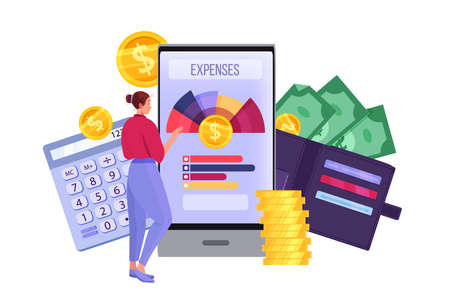Overview: Angel Investors vs. Venture Capitalists
When it comes to raising money for a startup in the United States, two of the most common sources are angel investors and venture capitalists. Both play important roles in fueling innovation and helping new businesses get off the ground, but they have different approaches, expectations, and ways of working with entrepreneurs. Understanding these differences is key for any founder who wants to make smart decisions about funding.
What Are Angel Investors?
Angel investors are usually high-net-worth individuals who invest their own money into early-stage startups. They often come from entrepreneurial backgrounds themselves and enjoy mentoring new founders. Angels typically get involved at the very beginning—when your company might just be an idea or a prototype—and they’re comfortable taking big risks for the chance of a big reward.
What Are Venture Capitalists?
Venture capitalists (VCs) are professional investors who manage pooled funds from institutions, corporations, or wealthy individuals. VCs usually look for startups that have already shown some signs of growth and potential. Their investments are often larger than those of angel investors, and they may want more control over how your company is run. VCs can help scale your business quickly, but they also expect significant returns.
Key Differences at a Glance
| Angel Investors | Venture Capitalists | |
|---|---|---|
| Source of Funds | Personal wealth | Pooled investment funds |
| Investment Stage | Early stage (idea/prototype) | Growth stage (scaling up) |
| Typical Investment Size | $10k – $250k | $1M+ |
| Involvement Level | Hands-on, mentorship-driven | Structured, board participation |
| Main Motivation | Personal interest and returns | Financial returns for fund stakeholders |
Why Does This Matter for US Startups?
Picking the right type of investor can shape your startup’s future in big ways—from how much money you raise to how much guidance you get and even how much control you keep. Knowing whether you need an angel or a VC helps you target your pitch, set realistic expectations, and build long-term relationships that support your goals as an entrepreneur in the US market.
2. Who Are Angel Investors?
Angel investors play a key role in the US startup ecosystem, especially for companies just getting off the ground. But who exactly are these early supporters, and what makes them different from other types of investors?
What Is an Angel Investor?
An angel investor is usually an individual with high net worth who invests their own money into startups. Unlike venture capitalists, who invest funds on behalf of a firm or group, angels use their personal finances to back entrepreneurs they believe in.
Typical Backgrounds of Angel Investors
Angel investors often come from backgrounds such as:
- Successful entrepreneurs who have built and sold businesses
- Experienced professionals from tech, finance, healthcare, or other industries
- Retired executives looking to stay active in business
- High-net-worth individuals interested in supporting innovation
Angel Investor Profile Table
| Background | Main Motivation | Typical Investment Amount | Stage They Invest In |
|---|---|---|---|
| Former Entrepreneurs | Giving back, sharing experience | $10,000 – $250,000 | Seed/Pre-seed/Early stage |
| Industry Professionals | Diversifying investments, networking | $25,000 – $100,000 | Early stage startups |
| Retired Executives | Mentoring founders, staying active | $10,000 – $50,000 | Startups with growth potential |
| High-Net-Worth Individuals | Pursuing new opportunities | $50,000 – $500,000+ | Mainly seed/early stage companies |
The Motivations Behind Angel Investing
Most angels aren’t just chasing big returns—they also want to help the next generation of entrepreneurs succeed. Their motivations often include:
- A desire to give back to the startup community
- The excitement of being part of new and innovative projects
- The chance to mentor and guide founders based on their own experience
- The potential for financial returns if the company takes off (though it’s risky!)
- Expanding their professional network and staying engaged in business trends
How Much Do Angels Invest?
The investment size can vary widely, but here’s a general guideline for US startups:
- Individual angel checks: Typically between $10,000 and $250,000 per deal.
- Angel groups (multiple angels pooling funds): Can reach up to $1 million for one round.
- Main focus: Seed and pre-seed rounds where startups need cash to build products or get initial traction.
Typical Investment Size Table
| Type of Angel Investor | Investment Range (USD) |
|---|---|
| Solo Angel Investor | $10,000 – $250,000 |
| Angel Group (Syndicate) | $100,000 – $1 million+ |
The Types of Startups Angels Target in the US Market
Angels generally look for startups that:
- Are at the earliest stages—often just an idea or a prototype (pre-seed/seed)
- Show strong founder passion and commitment
- Solve real problems with innovative solutions
- Might have trouble attracting traditional bank loans or big venture capital money right away
If you’re building something new in Silicon Valley, Austin, New York City—or anywhere across the US—angel investors could be your first true believers. Understanding who they are and what drives them can help you find the right match for your startup’s journey.

3. Venture Capitalists Explained
What Do Venture Capitalists (VCs) Do?
Venture capitalists are professional investors who manage pooled funds from individuals, corporations, pension funds, or other institutions. Their main goal is to invest in high-potential startups and early-stage companies that have the ability to scale rapidly. Unlike angel investors who typically use their own money, VCs invest other peoples money through venture capital firms.
How VC Firms Operate in the US
VC firms in the US are usually organized as limited partnerships. The firm raises a fund from various investors (called Limited Partners or LPs), and then professional investors (called General Partners or GPs) select which startups to back. The typical lifecycle of a VC fund is around 7-10 years, during which the firm invests in multiple startups, helps them grow, and eventually aims to exit through an acquisition or IPO.
How Venture Capital Firms Work: A Quick Overview
| Who Provides the Money? | Who Makes Investment Decisions? | How Do They Make Money? |
|---|---|---|
| Pension Funds, Corporations, Wealthy Individuals | General Partners at VC Firms | By selling their stake after a company is acquired or goes public |
Investment Criteria for US VCs
Venture capitalists look for startups with high growth potential and scalable business models. They typically want:
- A strong founding team with relevant experience
- A large addressable market in the US or globally
- Unique product or technology with competitive advantages
- Traction—such as user growth, revenue, or strategic partnerships
- A clear path to profitability and a potential exit strategy
Typical Stages VCs Invest In
| Stage | Description | Average Investment Size |
|---|---|---|
| Seed Stage | Very early; company may have MVP and first customers | $500K – $2M |
| Series A/B/C+ | Growth stages; proven product-market fit and scaling fast | $2M – $50M+ |
| Latter Stages / Pre-IPO | Mature startups preparing for acquisition or IPO | $10M – $100M+ |
The Role of VCs Beyond Capital
In addition to funding, US venture capitalists often provide mentorship, industry connections, recruiting help, and strategic guidance. Many VCs also take board seats and play an active role in shaping major company decisions.
4. Key Differences: Decision-Making, Involvement, and Funding Structures
Decision Speed
One of the first things US startups notice is how quickly each type of investor makes decisions. Angel investors tend to move faster because they’re usually investing their own money. There’s less red tape, fewer formal processes, and often just a simple conversation and a handshake before moving forward. Venture capitalists (VCs), on the other hand, are managing funds from multiple sources. They typically have teams that conduct due diligence, which means decision-making can take weeks or even months.
Level of Involvement
Angel investors are often more hands-on—especially if they have experience in your industry. They might offer advice, make introductions, or help you navigate early challenges. Many angels become mentors or trusted advisors. VCs can also be involved but usually on a more strategic level. They might want board seats and expect regular updates but may not be as available for day-to-day guidance.
Funding Processes
The process for getting funding from each group is different too. Angels are likely to keep things informal—maybe just a pitch deck, a meeting, and a basic agreement. VC funding involves detailed business plans, pitches to investment committees, term sheets, and legal reviews.
| Angel Investors | Venture Capitalists | |
|---|---|---|
| Decision Speed | Fast (days to weeks) | Slower (weeks to months) |
| Involvement Level | High (hands-on, mentoring) | Strategic (board seats, oversight) |
| Funding Process | Simpler, less formal | Structured, formal due diligence |
| Investment Size | $10k–$250k per deal (typical) | $500k–$5M+ per deal (typical) |
| Expectations | Flexible; may accept slower growth | Aggressive growth targets; aiming for large exits |
Expectations After Investment
After the check clears, what do these investors expect? Angel investors often have more flexible expectations—they know early-stage companies are risky and may be patient with your progress. VCs are generally looking for rapid growth and scalability because their business model relies on big returns within a set timeframe (usually 5-7 years).
5. Which Is Right for Your Startup?
Understanding What Your Startup Needs
Choosing between angel investors and venture capitalists is a big decision for US founders. Both options have unique benefits, but the right fit depends on your company’s stage, industry, funding needs, and growth plans. Let’s break down the main factors to help you decide which path matches your startup’s journey.
Key Considerations for US Founders
| Factor | Angel Investors | Venture Capitalists |
|---|---|---|
| Stage of Startup | Best for early-stage (idea or prototype) | Prefer later-stage (product/traction) |
| Typical Check Size | $10K–$250K | $500K–multi-millions |
| Decision Speed | Faster, informal process | Longer, formal process |
| Level of Involvement | Hands-on mentoring, often personal support | Strategic guidance, board seats, formal reporting |
| Cultural Fit in the US | More flexible and relationship-driven; strong in local communities and networks | Process-oriented, data-driven; common in major tech hubs (SF, NYC, Boston) |
| Equity Taken | Usually less dilution (<20%) | Larger stakes (20%+), multiple rounds expected |
| Main Goal | See founder succeed; passion-driven investing | Aim for high returns; expect rapid scaling or exits |
Cultural Insights: How US Founders Choose Funding Partners
- Relationship Building: US angel investors often value personal connections. A warm intro from a mutual contact can make a huge difference. Don’t underestimate networking events and local pitch competitions.
- Transparency: VCs expect detailed metrics and open communication. Be ready to share your KPIs and growth plan with confidence.
- Diversity of Networks: Angels may come from various backgrounds—tech, healthcare, finance—and can offer targeted advice. VCs bring larger networks but may focus more on scalability than individual mentorship.
- Cultural Expectations: In the US, both angels and VCs appreciate hustle but also honesty about challenges. Being coachable and open to feedback is valued by both groups.
- Long-Term Relationships: Think about who you want as a partner for years—not just who writes the check. Compatibility in values and vision matters in American startup culture.
- Pace of Growth: If you want to grow steadily or need time to iterate your product, angels might be a better fit. For aggressive scaling or aiming for “unicorn” status, VCs have the resources to fuel rapid expansion.
- Niche vs. Scale: Some startups thrive in niche markets where angels’ expertise shines; others need VC muscle to capture large national markets quickly.
Practical Tips for US Startup Founders:
- Create a clear pitch deck that highlights your traction—even if it’s just early signs of customer interest.
- If you’re pre-revenue or pre-product, focus on building relationships with local angels before approaching VCs.
- If your market is large and fast-moving, prepare for tough questions from VCs about competition and go-to-market strategy.
- Treat investor meetings as two-way interviews: ask about their experience with similar startups and how hands-on they like to be.
- If possible, talk to other founders who’ve taken money from your target angels or VCs—they’ll give you real-world insights into what working with them is like.
- Aim for alignment in values—this makes the inevitable ups and downs much easier to navigate together.
The Bottom Line: Matching Funding to Your Unique Path
The best choice comes down to what your startup needs most right now—capital, mentorship, speed, or scale—and finding partners whose approach fits your goals and company culture. Whether you lean toward angels or VCs, understanding these differences will help you build not just a funded business, but a lasting one that thrives in the dynamic US market.


